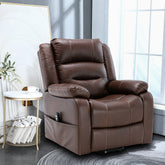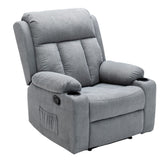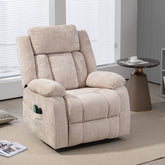Discover Space-Saving Storage Solutions for Your South African Home
Maximizing Your Space with Innovative Storage Systems
Understanding the Importance of Efficient Storage
Efficient storage is key in South African homes. It helps create a tidy, stress-free living space. Good storage makes daily life easier. It saves time and reduces frustration. With smart storage, you can find items quickly. Your home will look neater and feel more spacious. Efficient storage also protects your belongings. It keeps them safe from damage and dust. This can save you money in the long run. Plus, it makes cleaning much simpler. A well-organized home is a happy home. It's worth investing time in creating good storage systems.

Evaluating Different Storage Options for South African Homes
South African homes offer unique storage challenges. But there are many solutions available. Built-in wardrobes are popular and make good use of space. Under-stair storage is another clever option. It turns wasted space into useful storage. Wall-mounted shelves can free up floor space. This is great for small rooms. Ottomans with hidden storage are perfect for living rooms. They provide seating and storage in one. For kitchens, pull-out pantries make the most of narrow spaces. In bedrooms, bed risers can create extra under-bed storage. Each home is different, so consider your specific needs.
Tailoring Storage Solutions to Fit Your Space
To make the most of your space, tailor your storage solutions. Start by assessing each room's needs. Think about what you need to store and how often you use it. Measure your spaces carefully before buying any storage items. Look for multi-functional furniture when possible. This can save space and money. Don't forget about vertical space - use tall shelves or hanging organizers. In small bathrooms, over-the-toilet shelving can be a game-changer. For closets, use space-saving hangers and organizers. Remember, the best storage solution is one that works for your lifestyle.
The Minimalist Approach to Dressing Your Home
Why Adopting Minimalism Can Revolutionize Your Space
Minimalism can transform your South African home. It's about keeping only what you need and love. This approach creates a calm, clutter-free environment. It makes your space feel larger and more peaceful. Minimalism reduces stress by simplifying your surroundings. It saves time on cleaning and organizing. You'll spend less time managing stuff and more time enjoying life. Minimalism can also save you money. You'll buy less and focus on quality over quantity. It encourages mindful living and appreciation for what you have. Adopting minimalism is a journey, but the benefits are worth it.

Key Factors to Consider When Minimalizing Your Wardrobe
Minimalizing your wardrobe can be life-changing. Start by sorting your clothes into keep, donate, and discard piles. Keep items that fit well and make you feel good. Choose versatile pieces that can be mixed and matched. Stick to a color palette for easy coordination. Aim for quality over quantity. It's better to have fewer, well-made items. Consider your lifestyle when choosing what to keep. Don't hold onto clothes for "someday." Be honest about what you actually wear. Use the "one in, one out" rule to maintain your minimalist wardrobe. Remember, a minimal wardrobe doesn't mean boring. It means intentional and functional.
Implementing Minimalist Principles in Your Home Décor
Minimalist décor can make your South African home feel spacious and serene. Start with a neutral color palette. This creates a calm backdrop for your space. Choose furniture with clean lines and simple designs. Avoid clutter on surfaces. Instead, display a few meaningful items. Use storage solutions to keep things out of sight. Opt for multi-functional furniture when possible. This reduces the number of items you need. Let natural light in to create an open feel. Use mirrors to make spaces appear larger. Remember, in minimalist décor, every item should have a purpose. Quality is more important than quantity. Embrace negative space - it's okay to have empty areas.
From Clutter to Clarity: Tips for Decluttering with Ease
The Psychology Behind Clutter and How to Overcome It
Clutter often has emotional roots. It can be linked to fear, anxiety, or past experiences. Some people keep things "just in case." Others have trouble letting go due to sentimental attachments. Clutter can also be a form of procrastination. Understanding these reasons can help you declutter. Start by identifying your clutter triggers. Are you holding onto things out of guilt? Or fear of needing them later? Once you know why you're keeping things, it's easier to let go. Remember, your stuff doesn't define you. Focus on creating a space that supports your current life and goals. It's okay to let go of things that no longer serve you.

Step-by-Step Guide to Decluttering Your South African Home
Decluttering can seem overwhelming. But with a step-by-step approach, it's manageable. Here's a simple guide:
- Start small. Choose one area, like a drawer or shelf.
- Sort items into keep, donate, and discard piles.
- Be honest about what you use and love.
- Don't keep things out of guilt or "just in case."
- Use the "one year rule." If you haven't used it in a year, let it go.
- Tackle one room at a time to avoid burnout.
- Create a designated space for everything you keep.
- Use storage solutions to organize what you decide to keep.
- Regularly reassess your belongings to prevent future clutter.
Remember, decluttering is a process. Be patient with yourself and celebrate small wins.
Maintenance and Sustainability: Keeping Your Space Organized
Maintaining an organized space is key to long-term success. Create daily habits to keep clutter at bay. Put things away after using them. Do a quick tidy-up each evening. This prevents clutter from building up. Regularly reassess your belongings. If you bring in something new, consider what you can let go. Use the "one in, one out" rule. This helps maintain balance in your home. Involve your family in the organizing process. Teach children to tidy up after themselves. Make it a fun family activity. Consider sustainability when organizing. Use eco-friendly storage solutions when possible. Donate usable items instead of throwing them away. Remember, an organized home is an ongoing process. Be patient and consistent for the best results.






Leave a comment
All blog comments are checked prior to publishing